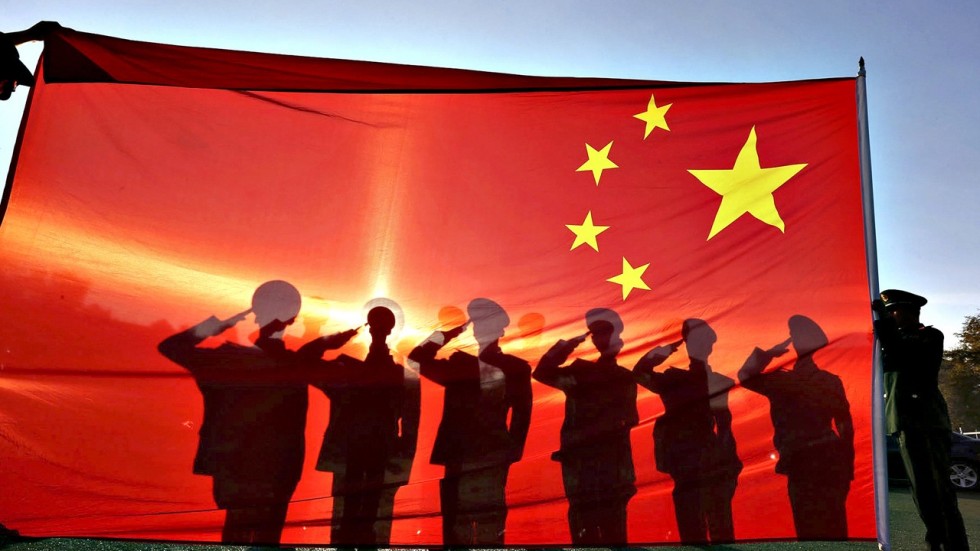Sometimes two people grow so incompatible — or one spouse is so obnoxious, unfaithful (physically, emotionally or otherwise) or abusive and beyond repentance — that a divorce is worth the anguish and cost.
Given time, resilient people and their offspring recover — and so it goes with nations, too.
In 1972, Richard Nixon’s visit to China initiated a courtship — a process of opening U.S. markets to commerce and economic reforms in the Middle Kingdom — that culminated with nuptials. In 2001, China was admitted to the WTO and that granted it most of the same rights and privileges in the United States that our European trading partners enjoy.
China has proven to be habitually unfaithful, a bully and unrepentant. It has kept tariffs high, imposed byzantine administrative barriers to U.S. products, targeted American industries like solar panels for extinction, turned intellectual property theft into a national sport and now is seeking to dominate world markets in advanced technology and artificial intelligence by strong arming American companies.
Lest we forget, Beijing is using the dollars it skims from its trade surplus with America to purchase influence throughout Asia and elsewhere with its One Belt-One Road initiative. It is building a formidable Navy to bully neighbors in the South China Sea and enabled North Korea’s nuclear program. And it requires U.S. companies to help it deploy sophisticated technologies that limit Chinese citizens’ access to Western Internet sites and enables Beijing’s repression of the Uighur Muslims in Xinjiang province and other human rights abuses.
China is hardly a poster child for the idea that trade begets kindly neighbors and democratic values.
President Trump has thrown up tariffs on aluminum, steel and solar panels, and on another $50 billion and slowed Chinese investment in U.S. technology companies to get Beijing to change its ways. And he is contemplating even tougher measures.
His advisers tell us China’s economy is on the ropes. Chinese stocks are skidding, and its prosperity sits on a mountain of debt.
Belying this, China posted 6.7 percent growth in the second quarter, and it is no Greece. Beijing can print its own money to prop up state-owned and private enterprises and provincial governments. Its foreign-currency-denominated debt is only 14 percent of GDP, which is modest as compared to other emerging powerhouses like South Korea.
More fundamentally, China can’t reform, because culturally it can’t function without state direction of investment. It is organized much like prewar Germany and Japan (and until recently, post-war Japan) where privately-owned companies were organized into industry associations that looked to single-party governments for priorities in allocating investment.
Asking China to reform would be akin to asking pre-World War II Germany to give up militarism and become a benevolent state.
Accepting Beijing’s mercantilisms, as we did until Mr. Trump, is akin to Chamberlain’s appeasement — it only emboldened the tyrant.
President Xi played Mr.Trump with the talks that came out of the Mar-a-Largo Summit — Beijing didn’t budge because it does not know how to change. And Mr. Xi likely believes Mr. Trump, not being terribly popular, will be succeeded by a president similar to George W. Bush or Barack Obama — they complained but ultimately knuckled under.
It’s time to divorce China. Announce we will no longer be governed by World Trade Organization (WTO) rules, impose a balanced trade regime — either through across-the-board tariffs or quotas — and let the rest of the world adjust as it may.
Impose very strict controls on exports of technology, bilateral investment and the education of Chinese nationals in our business schools and STEM disciplines.
Initially, it will be costly.
Supply chains in many industries will be disrupted and require rearranging. Prices will go up on toasters and televisions at Walmart until production moves elsewhere in Asia or returns here. Apple and its high-tech brethren will have to stop outsourcing jobs and learn to act to serve American interests again.
U.S. companies will be denied access to China’s rich market but will have the American market much more to themselves.
The nice thing about beating your head against the wall and getting no results is that it feels so good when you stop.













